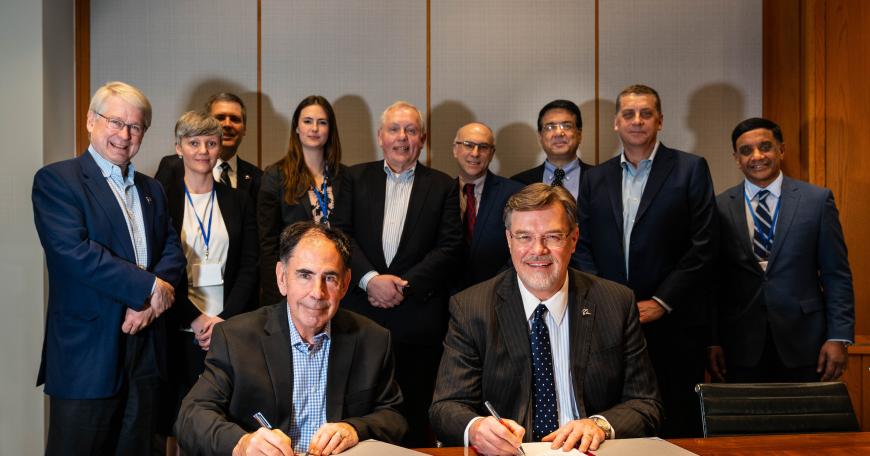
NEET welcomes Boeing sponsorship
A cross-departmental engineering program focused on modern industry and real-world projects is welcoming a new sponsor and industry collaborator: aerospace company Boeing.
This is a deeply beneficial industry collaboration for the New Engineering Education Transformation (NEET) program, which launched in 2017 to reimagine engineering education at MIT, says NEET Executive Director Amitava "Babi" Mitra.
A cross-disciplinary endeavor with a focus on integrative, project-centric learning, NEET cultivates the essential skills, knowledge, and qualities to help students build the “new machines and systems” that will be required to address the formidable challenges posed by the 21st century.
“Industry experts bring a flavor of real life into the projects,” Mitra says of the NEET program, which is offering five threads — Advanced Materials Machines, Autonomous Machines, Digital Cities, Living Machines, and Renewable Energy Machines.
“Projects are more engaging for students when we can connect them to what’s happening in industry,” says Mitra. Students in NEET earn a degree in their chosen major and are simultaneously awarded a NEET certificate in their chosen thread.
This fall, Boeing will become a founding co-sponsor of the Autonomous Machines thread. Alexa Jan, a senior in the Department of Electrical Engineering and Computer Science and NEET participant, calls this news exciting.
“A collaboration with Boeing will provide more resources for interdisciplinary projects that will help students be leaders in the autonomous machines field and beyond,” she says.
The close proximity of Aurora Flight Sciences, a Boeing company, will enable frequent interactions between students and autonomy and robotics experts from industry, says Jonathan P. How, the Richard Cockburn Maclaurin Professor of Aeronautics and Astronautics, who leads the Autonomous Machines thread.
“This collaboration will provide students with a wealth of experience on the needs for advanced autonomy in complex systems and a better understanding of how to implement those algorithms,” says How. He has worked with Boeing on research for more than a decade.
The collaboration was celebrated when Boeing representatives visited campus visit on April 17 for a series of meetings with administrators, faculty, and students.
“This partnership fits with our strategy for the Boeing Aerospace and Autonomy Center at Kendall Square, which will advance the enabling technologies for autonomous aircraft,” says Greg Hyslop, Boeing chief technology officer and senior vice president of engineering, test, and technology. “We see great benefit in supporting MIT students challenged with developing real-world autonomy solutions.”
This article was republished with permission from the MIT News Office.

